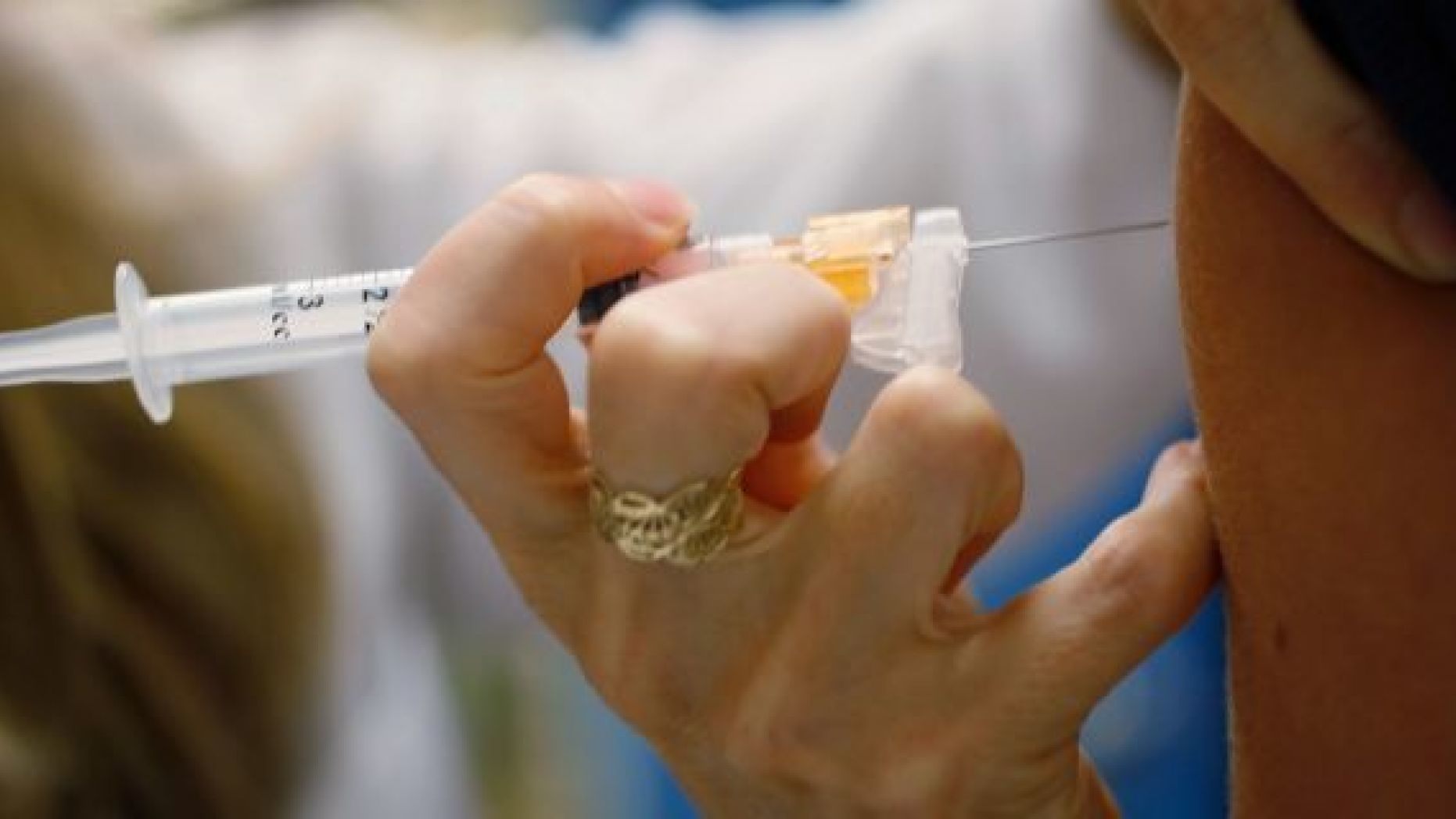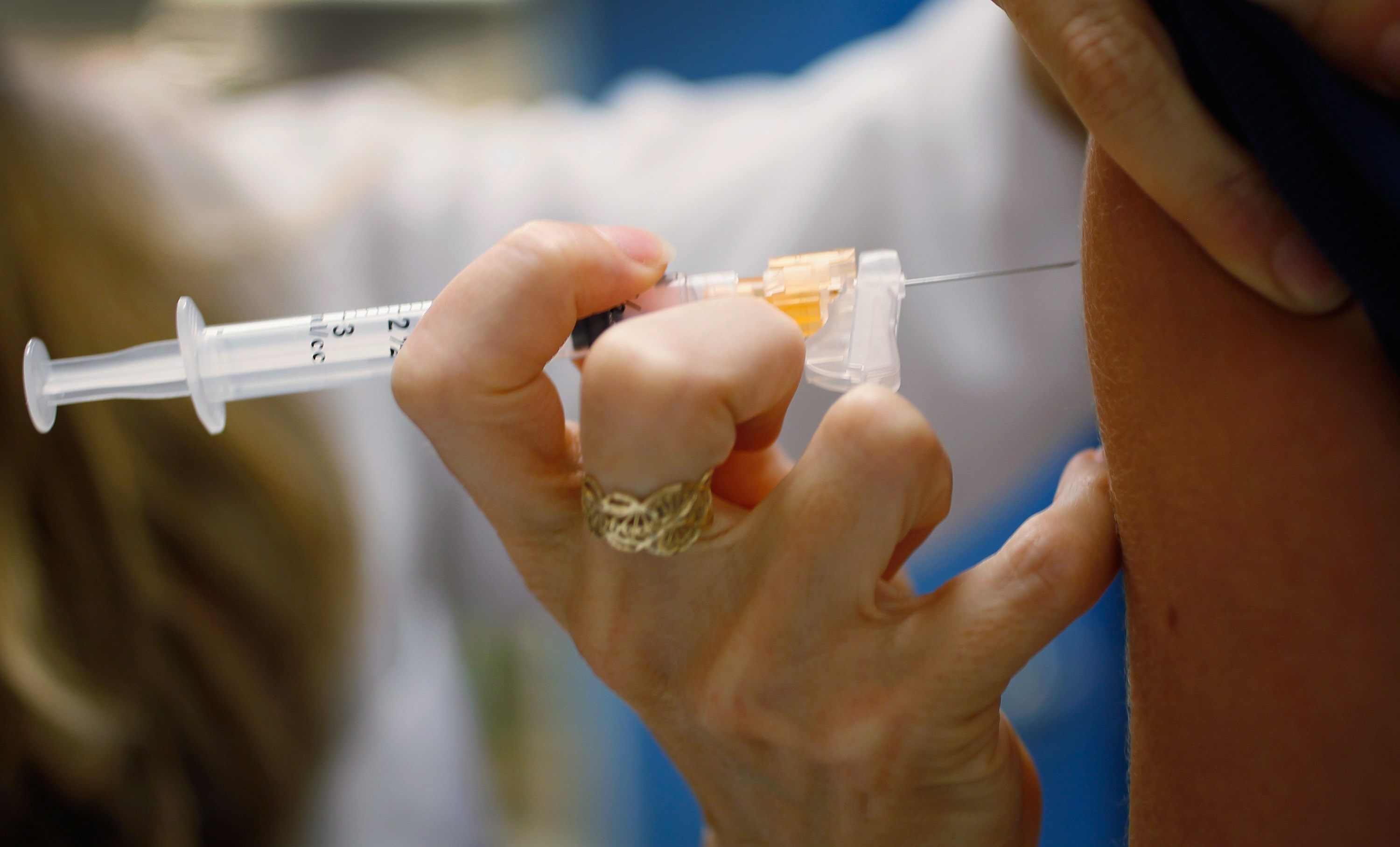[ad_1]

The vaccine for human papillomavirus, or HPV, is given to prevent a sexually transmitted infection that can cause cancer. In 2009, the National Health Service in the United Kingdom began offering the vaccine to 12 and 13-year-old girls at schools around the country.
(Photo by Joe Raedle/Getty Images)
Researchers at the University of Edinburgh concluded a nationwide HPV school vaccination program offered to young girls led to a “dramatic reduction” in the risk of developing cervical cancer later in life.
The U.K.’s National Health Service (NHS) launched a program in 2009 that offers 12- and 13-year-old girls the vaccine against the human papillomavirus (HPV), a group of sexually transmitted viruses that could lead to cervical cancer.
Scientists from Strathclyde, Edinburgh, Aberdeen and Glasgow Caledonian universities teamed up to analyze the cervical cancer screenings and vaccination records for 138,692 women who received their first screen for cervical cancer at the age of 20 between 2008 and 2016.
WOMAN SHARES CERVICAL CANCER STORY TO WARN OTHERS TOLD THEY’RE TOO YOUNG FOR FREE PAP SMEAR
“Routine vaccination of girls aged 12-13 years with the bivalent HPV vaccine in Scotland has led to a dramatic reduction in pre-invasive cervical disease,” the study published in the British Medical Journal said. “The bivalent vaccine is confirmed as being highly effective vaccine and should greatly reduce the incidence of cervical cancer.”
Cervical cancer is the second most common type of cancer for women under the age of 35 in the U.K., the NHS reported. While there are over 100 kinds of HPV, some strains of the virus are considered high risk because of their link to cervical cancer.
Researchers evaluated the level of abnormal cells, called cervical intraepithelial neoplasia (CIN), found in each woman’s first screening. The NHS categorizes CIN in three levels with CIN 1 cells having the lowest risk of becoming cancerous, CIN 2 have a moderate risk and CIN 3 cells having the highest risk.
The study revealed that vaccinated women born in 1995 and 1996 experienced an 89 percent reduction in CIN 3 cells compared to women born in 1988 who never were administered the vaccine. The researchers also found an 88 percent reduction in CIN 2 cells and a 79 percent reduction in CIN 1 cells, The Independent reported.
Public Health Minister Joe FitzPatrick told BBC News that the outcome of this study represents “the significant and continued benefits of our vaccination program,” and that the NHS will offer the vaccine to school age boys beginning next year.
When the NHS first launched the vaccination program, scientists originally believed the vaccine would protect against only two strains of HPV, the ones responsible for 80 percent of precancerous conditions, reported BBC News.
Research now suggests the HPV vaccination protects against three additional strains of the virus, eliminating 90 percent of pre-invasive cervical disease in Scotland.
CLICK HERE FOR THE FOX NEWS APP
Senior research fellow at Glasgow Caledonian University, Kevin Pollock, who co-authored the study with Tim Palmer, told The Independent that the study exceeded expectations.
“It is associated with near elimination of both low and high-grade cervical disease in young Scottish women eight years after the vaccine program started,” Pollock said. “The figures are impressive and show a reduction of up to 90 percent of cervical disease abnormalities – pre-cancerous cells.”
HPV is spread easily through sexual contact, and many women infected with the virus will recover from the infection without treatment and without experiencing any symptoms, according to NHS. However, 99.7 percent of cervical cancer cases are caused by an infection from high-risk HPV strains.
[ad_2]
Source link

